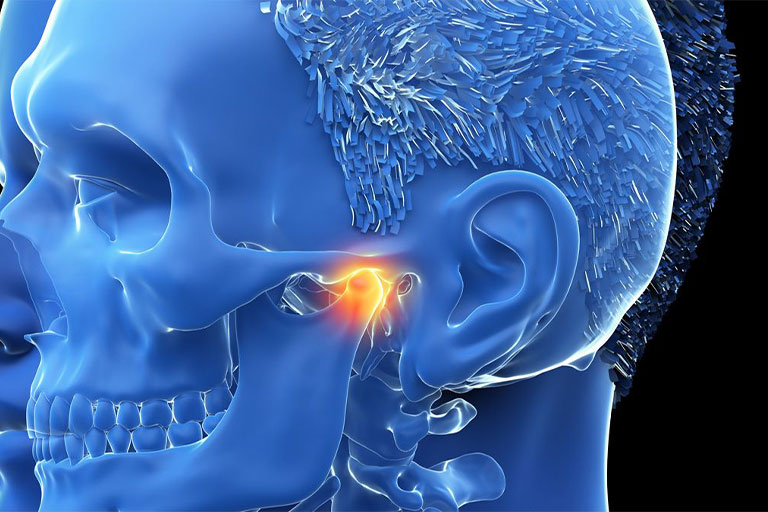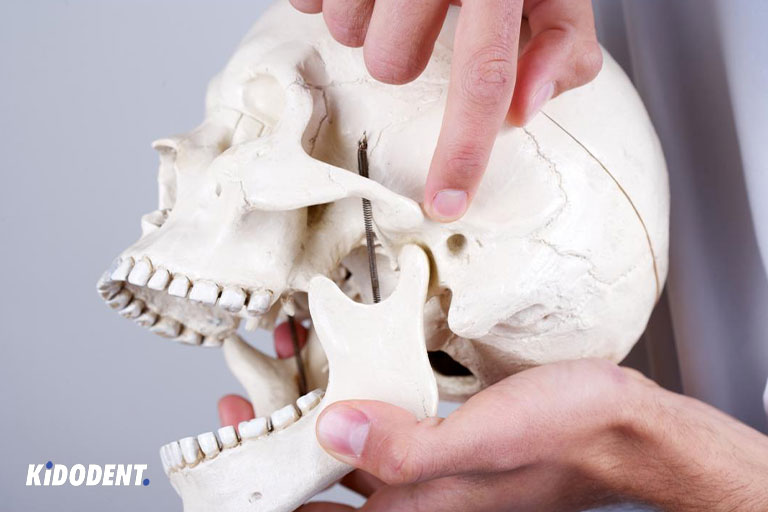Oral and facial (orofacial) pains include pains in the neck, head, and TMD. First, we should know whether our Jaw pain-Temporomandibular disorder is chronic or acute. Acute pain is the pain that lasts within weeks and chronic pain is the pain of months and years that we deal with.
Children and adolescents experience jaw pain more often. Usually, in the jaw pain of the temporomandibular disorder, children and teenagers complain about the severity of pain especially during chewing and when there is pressure on that part of the jaw and they may not be able to open their jaws easily. The jaw pain can be associated with many factors. For example, it can be because of psychological distress, damage to teeth or maybe other pains in the neck or head, or even the bad conditions of the teeth.
What is temporomandibular disorder (TMD) and what are the types of TMD?
TMD is referred to muscle, skeletal and neuromuscular conditions that are associated with our chewing muscles (mastication) and TMJ (temporomandibular joint) structures of our jaw. There are two types of temporomandibular disorders:
- Myelogenous: it is related to the muscles
- Arthrogenous: it is related to joints

What causes TMD disorder?
The causes of TMD disorders are related to many factors like abnormalities, trauma and other diseases. Dentists and clinicians should examine and interview the patient for the accurate diagnosis. Questions like “When did the pain start?” “Where is the exact spot of the pain?” “What makes it worse or how long does it last?” provide helpful clues.
As jaw pain is associated with many reasons among individuals, the most common conditions that contribute to or cause TMD disorders are:
- Parafunction activities like clenching jaws, lip biting, tooth grinding, and other activities either due to intentionally doing these activities or just an unconscious bad habit
- Sleep disorders like sleep bruxism (nocturnal bruxism) is another condition as patients feel pain in their jaws when they wake up because of activity of chewing muscles and the habit of clenching or grinding teeth during sleep.
- Juvenile idiopathic arthritis in children and adolescence
- Hyperplasia
- Hemifacial microsoma
- Outcomes of jaw surgeries or treatments that is called iatrogenic
- Syndromes like Marfan or Ehlers-Danlos
- Internal derangement: internal derangement is an abnormality in temporomandibular joint (TMJ) pain, which involves the condyle, fossa and disk in the jaw structure.
- Ankylosis (stiffness joints): ankylosis is because of the fusion of the bone or fibrous tissue and results in jaw opening difficulty or immobility
- Damages because of sports injuries or accidents
- Unknown causes or idiopathic diseases
The signs and symptoms of temporomandibular disorder (TMD)
Upon hearing snapping or clenching sounds in the joint of your jaw, you may get worried. Wait for clear examinations and don’t panic! Generally, these jaw pains are treated with minimal intervention, and in severe form after the complete diagnosis surgical procedures are required.
Signs of temporomandibular disorder range from these conditions:
- Temporomandibular joints do make sound
- Bad occlusal condition of teeth
- Jaw movement difficulties especially for opening
Symptoms of temporomandibular disorder include:
- Headaches
- Nausea
- Feeling tight in your jaws
- Bruxism during sleep as we explained
- Pain and dizziness
Common medications, TMJ surgeries and therapies to treat temporomandibular disorder (TMD)
With ultimate decisions by clinicians, dentists, dental care providers, and maxillofacial surgeons, we can be ensured what the root of theJaw pain-Temporomandibular disorder is and what the best method of TMD treatment can be.
Computer tomography and panoramic radiographic imaging are those technological ways to provide the best decisions in temporomandibular disorder treatment.
- Medications for temporomandibular disorder (TMD): we must know the dosage, the needed usage time, and these are done by consultations with our dentists. For example, in chronic pain due to addiction that is caused by narcotics the usage must be within short period of time (say 10 day). Generally these medications for relaxation, inflammation or other conditions are varied. Ibuprofen, aspirin, indomethacin are great for inflammation and for TMJ analgesics like acetaminophen can be suggested or antidepressants like amitriptyline are advised depending on the pain and condition.
- Therapies for temporomandibular disorder (TMD): therapy is great in treating jaw pains because of nonsurgical purposes and risk-free approaches. Special physical relaxation and exercises for jaw area are suggested for the treatment. Splint therapy is one great strategy to treat pain related to TMJ or muscles in our jaw. Splints offer different occlusal contact so that the pain and pressure is reduced and managed.
- TMJ surgeries for temporomandibular disorder (TMD): most of our jaw pains are treated without any surgeries. If all the therapies and medications don’t give us the relaxation we need, the last of the treatments for Jaw pain-Temporomandibular disorder are surgeries.
To treat TMJ problems some surgeries are suggested to relieve the Jaw pain-Temporomandibular disorder related to temporomandibular joint (TMJ) derangements:
- Arthroscopy
- Removing or repairing disk
- Replacing joint
- Arthrocentesis
